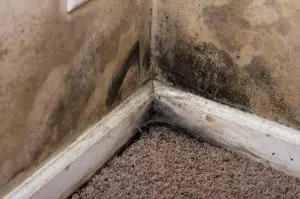 What Types of Materials in Buildings Attract the Most Mold?
What Types of Materials in Buildings Attract the Most Mold?People worry when they discover mold signs in their homes; they worry about health risks. The usual response is to clean the mold, but depending on the source, extent, and type of mold, this can cause cross-contamination and potentially increase your exposure. When you find mold in your property, call a mold remediation specialist to treat, remove, and prevent more mold properly.
Mold can affect indoor air quality, aggravate allergies, and cause damage by destroying building materials and weakening structural supports. Mold affects different types of building materials based on several factors: moisture levels, ventilation, light exposure, and porosity (having minute spaces or holes through which liquid or air may pass). Since mold is a living organism, it can feed off of organic materials in your walls. Here are some examples:
Cinder block walls are strong, long-lasting, and resistant to elements such as wind and rain; however, many people still question, “Can mold grow on cinder block?”. Yes, cinder block walls are susceptible to mold growth.
Concrete is not an organic material like wood, so the concrete itself does not act as a food source for mold. However, if dirt, dust, and moisture collect as a result of flooding, humidity, or rain, the mold spores can settle on the wall surface and begin to grow. It also absorbs moisture so slowly that you can have significant damage before you discover it. Therefore, unless the concrete is kept extremely clean, mold growth can occur, so address both 1) airborne moisture by lowering the humidity and 2) removing all liquid moisture from flooding and vapor.
If you notice mold growing on a concrete surface in your home, you can remove it by scrubbing the area with a mold-killing solution and removing the organic materials from the surface that acted as a food source. However, you may need professional help with keeping the concrete dry. The biggest key to preventing mold is to routinely check concrete surfaces in high-moisture areas and then address the problem at the source.
Although wood is a common building material for the structural elements of a home, it is also very vulnerable to mold growth. Mold requires water and an organic food source to thrive; wood acts as both food and a moisture source due to its ability to absorb water. ?In time, mold will eventually destroy wood surfaces as it feeds on the nutrients. Removing mold from wood may be as simple as using a mold-killing solution, but the wood must be thoroughly dried. Using professional techniques and equipment, a professional team like Sierra Restoration can ensure that no moisture is left.
Of these materials, drywall is the most porous surface, and once mold starts to grow on drywall, it cannot be removed. Because drywall is a substance high in cellulose, it is one of the most common materials for mold contamination. Drywall that is contaminated by mold must be cut out and removed so that it can be replaced by new drywall.
And mold commonly grows out of sight behind drywall in the wall cavities. These spaces often contain pockets of humid, moist air. Mold can also grow hidden behind wallpaper; its glue can hold organic debris as a food source for mold growth. Contact a professional to inspect behind the drywall with minimal impact to the wall surfaces.
Since 2010, Sierra Restoration has treated each mold remediation project not just as a job, but as an opportunity to help a friend. At Sierra Restoration, customers in the Utah community are our family.
When you contact Sierra Restoration in Logan, Utah, for mold cleanup and removal, you don’t just get a highly-experienced team that specializes in high-quality water removal and cleanup services; you are choosing a company that is fully licensed to handle all reconstruction work that may need to happen after any water or mold problem.
If you have a question or would like to request a free estimate, please contact us using the form below.
If this is an emergency, please call (435) 563-4007 for 24/7 service.